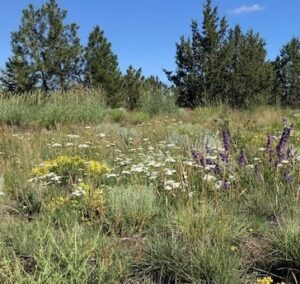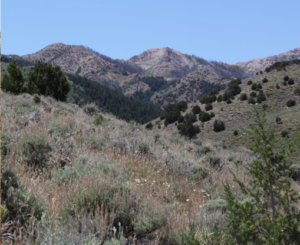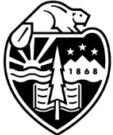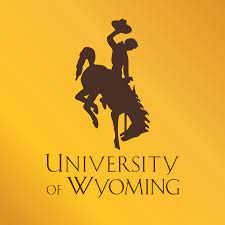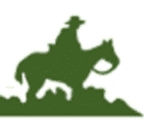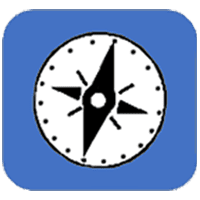Field Tour / Workshop
View the itinerary.
May 22, 2025 the Nevada Native Plant Partnership is hosting a Time Travel Restoration Roadshow around the Reno area. Attendees will travel through time to see a variety of projects that have been implemented in the last 20+ years. Please carpool as much as possible since parking will be limited throughout the tour.
When: May 28th – 30th, 2025
Where: Prineville, Oregon
Board meeting, presentations and first night social: 4-H Clover Building, 502 SE Lynn Blvd, Prineville, OR 97754
Cost: Regular Registration (until May 14th): $75; Late Registration (after May 14th): $85; Student Registration: $25; May 28 only – social and light dinner/appetizers, evening presentation: $30
Questions: Contact Andy Neary, Central Oregon Chapter
The workshop will be May 7th – 8th 8:00am-5:30 pm. Registration is FREE, so please come prepared with lunch, snacks, water and layers. In additional comments, please indicate anything we need to know (e.g., arriving late on Monday at 8:30am, need information for camping on site, accommodations related to a disability, uncertainty regarding federal travel restrictions etc.) Reach out to Vanessa (Vanessa.Schroeder@oregonstate.edu) with any other questions or concerns. Note: We are limiting to 40 people. We will have a waitlist. If you are no longer able to attend please email Vanessa so we can let others into the course. You will not immediately receive confirmation of the registration, but we will send out confirmations closer to the course. If you are waitlisted we will contact you to let you know where you are on the waitlist and if you have been moved into the course.
Register for Level 2 Field Workshop in Idaho Falls, ID
This two-day workshops are designed to take an in depth look at how you can apply a set of principles and tools to strategically manage IAGs in both Eastern Idaho and Northern Great Basin. Our target audience includes both land managers and producers. Whether you are from the area or from the greater western US, these workshops are designed to help participants gain knowledge about how to best tackle IAGs through conversations about various management practices depending on invasion severity and recovery potential. Management goals can vary depending on how success is defined.
Additionally, we will visit a spectrum of sites from intact core areas to other rangelands areas. At these various sites, we will talk about potential management tactics and explore how different government agencies are tackling the issue based on various circumstances. Through this field workshop, our goal is to have participants become more confident with the different planning and management tools and help them to determine best management tactics to fit their situations.
Register for Level 2 Field Workshop in Elko, NV
This two-day workshops are designed to take an in depth look at how you can apply a set of principles and tools to strategically manage IAGs in both Eastern Idaho and Northern Great Basin. Our target audience includes both land managers and producers. Whether you are from the area or from the greater western US, these workshops are designed to help participants gain knowledge about how to best tackle IAGs through conversations about various management practices depending on invasion severity and recovery potential. Management goals can vary depending on how success is defined.
Additionally, we will visit a spectrum of sites from intact core areas to other rangelands areas. At these various sites, we will talk about potential management tactics and explore how different government agencies are tackling the issue based on various circumstances. Through this field workshop, our goal is to have participants become more confident with the different planning and management tools and help them to determine best management tactics to fit their situations.
Workshop webpage.
In this two-day field and classroom workshop in Sheridan, WY, participants will build upon the information presented in the Level 1 Virtual Workshop: Defending and Growing the Core by Breaking the Cycle of Annual Grass Invasion. This hands-on workshop is designed to take a more in depth look at how you can strategically plan for and manage invasive annual grasses (IAG). Participants will visit various sites including intact core areas and growth opportunity areas where we will discuss potential management approaches in each situation. This is also a great opportunity for participants to see multiple management tactics and their effects on rangeland plant communities over time. We will explore various monitoring techniques and discuss strengths and weaknesses. Through this field workshop, participants will become familiar with different management practices and improve their capacity to determine which management tactics will best suite their needs in different situations.
Event website.
The PNW Section Summer Meeting and Tour will be May 29-31 in Chewelah, WA.
- Forest grazing, cover crop grazing, silvopasture, hay production, seedstock beef production, water quality, apex predators, tribal history and issues
- Headquarters: Mistequa Casino Hotel (pronounced Mist-a-quah), 2545 Smith Rd, Chewelah, WA 99109
Workshop flyer.
The first day will cover a variety of topics such as soil ecology, plant identification, invasive annual grass and juniper management, and the foundations behind applying remotely sensed data. The second day will focus on taking the foundations from day 1 and learning how to ensure that planning and management meaningfully influences landscape scale dynamics. Topics will include defending and growing core rangelands, identifying threats, prioritizing areas of ecological importance, synthesizing remotely sensed data, and applying different types of knowledge to address threats at multiple scales on the ground knowledge to manage at meaningful scales. For those of you familiar, this will be similar to the college science in the sagebrush steppe field training we do for universities but targeted for natural resource professionals.
The training is $100 and will include all meals. Registration will open in March.
The SageSTEP research team invites you to join us for a tour of the Onaqui research site near Tooele, Utah on May 21, 2024. We will tour the SageSTEP (https://sagestep.org/) shrubland network, SageSTEP woodland network and NEON sites (https://www.neonscience.org/field-sites/onaq), hear results from the past 15 years of data collection, and discuss management needs and research priorities for the next decade. We are particularly interested in hearing management perspectives on areas of greatest future need. 2024 field tour flyer
Logistics
Tooele is less than an hour from SLC. Lodging options include the Holiday Inn and Best Western. We recommend SUV/Trucks, particularly if there is rain prior to the tour.
Meet at 8am on Tuesday, May 21 at the Holiday Inn in Tooele (Address: 1531 N Main St, Tooele, UT 84074) to carpool/caravan to the Onaqui site. We plan to return to Tooele by 5pm. Please bring adequate food/water and be prepared to be outside all day.
There will be a no-host dinner on Monday, May 20 at 6 pm for any who can join.
Please RSVP to Lisa Ellsworth at: lisa.ellsworth@oregonstate.edu
Burn Plan Event information and registration.
Event flyer to forward to others.
Join us in the field to discuss prescription burn planning, treatments, monitoring, and results with Duncan Leao, Steve Howell, and Ali Paulson, USFS. This is an informal discussion open to all.


